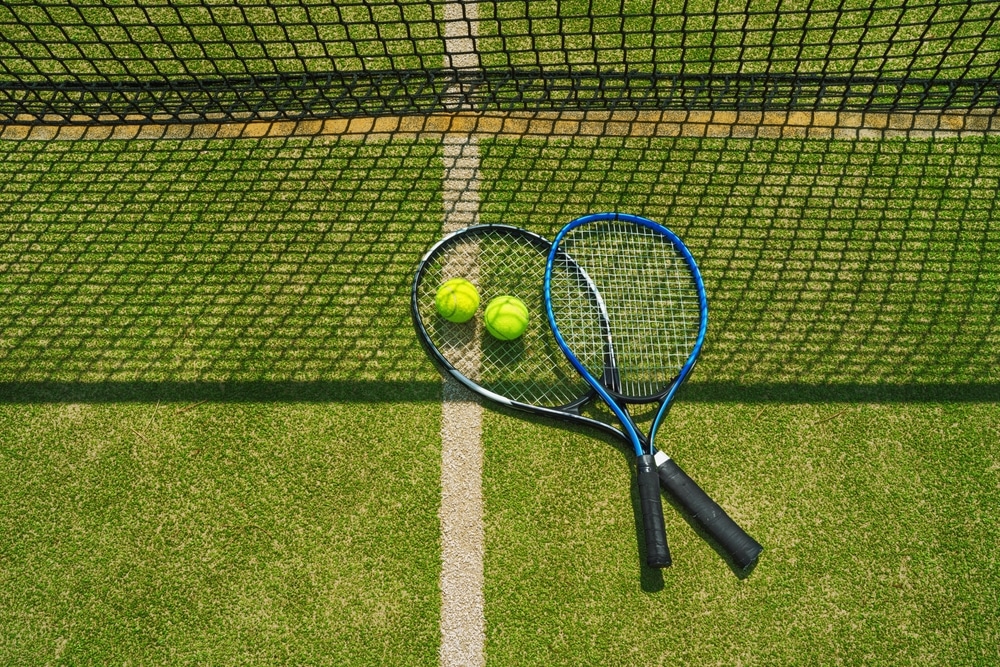I have always embraced physical activities with open arms. From my youth spent sprinting across diverse terrains and city streets to eventually penning a book on marathon running, my journey has been vibrant. I’ve enjoyed various forms of cardiovascular exercise, taken the plunge into swimming, challenged myself with high-intensity interval training, and even persisted with a year of CrossFit.
So, it was quite a revelation that tennis, which I rediscovered after a five-year break, evolved beyond a mere trend to become a permanent part of my life. Discussions with fellow tennis lovers consistently echo a common belief: Tennis goes beyond simply being a sport. It is a complete pastime that merges physical effort, mental clarity, strategic thinking, and sheer determination. Above everything else, it’s incredibly fun.
If you’ve ever pondered trying tennis, I can confidently say it’s worthwhile to pick up a racket. And no, it’s not merely about expanding my pool of practice partners. Tennis delivers an array of social, mental, and physical benefits.
Let’s explore seven compelling reasons why tennis will have you eager to step on the court.
1. A Thorough Physical Workout
In my younger days, I encountered a feature in a glossy magazine that proclaimed tennis as the ultimate sport for achieving leg definition. While aesthetic appeal is one aspect, I can attest to the rigorous workout your whole body experiences just moments after you arrive at the court. The reality is, tennis is remarkable for developing strength in your glutes, quads, hamstrings, and calves.
“The sport requires running and powerful leg movements. It improves your balance with its continuous changes in direction,” emphasizes Graeme Cox, a USPTA-certified tennis coach and assistant coach for the University of Utah’s men’s tennis team.
But the benefits aren’t confined to the legs. As I returned to tennis with a goal of enhancing my fitness regime, I turned to a book called Tennis Anatomy, which illustrated how nearly every muscle group plays a role in the game.
“It offers a comprehensive workout,” Cox asserts. “Your core gets a fantastic workout since it generates most of the power during strokes, even if it’s often overlooked. Additionally, your arms are in constant action when swinging the racket.”
A study from 2019 in Sports Health: A Multidisciplinary Approach highlighted that regular tennis participants exhibited stronger musculoskeletal functions in both upper and lower body areas compared to non-players.
Moreover, tennis serves as a stellar cardiovascular workout.
“Consistent play significantly elevates both sprint and recovery endurance,” notes Connor Frazier, a seasoned player and tennis instructor at Liberty Park Tennis Center in Salt Lake City, Utah. “The crux of tennis lies in your ability to recover quickly for the next exchange, not just in overall running endurance.”
These short bursts of intense activity with minimal rest periods are crucial for enhancing anaerobic fitness and overall oxygen uptake. The constant challenges mean that as you improve your skills, the pace and caliber of your opponents will increase too.
2. Pure Enjoyment from the Start
While tennis can be demanding, it offers enjoyment right from your first experience on the court. Frazier emphasizes that there is no need to be exceptionally fit, contrary to the impressions one might get from professional matches.
“The sport is more accessible than many realize, and you don’t need advanced skills to find joy in it,” he notes. “Even those who aren’t particularly agile or strong can enjoy the game through simple, gentle exchanges.”
On your first day, you might find yourself exchanging exciting shots with a partner or a practice wall, instantly forming a small victory that can quickly turn into an addictive source of fun.
Frazier highlights the satisfaction of witnessing your own improvement, explaining that tennis is a game where initial awkwardness evolves into refined coordination, a skill that can be developed over time—and often in less time than you might think.
3. Promotes a Growth Mindset
One of my favorite elements of tennis is its relentless learning curve. Dedicated players spend their time strategizing, honing new skills, and attaining personal goals.
The intellectual challenge of fine-tuning your game and establishing evolving objectives keeps you engaged and helps prevent complacency. Cox, who coaches diverse age groups, observes a shared commitment among his clients to elevate their abilities.
Even as your skills progress, the intricate nature of tennis ensures there are always new aspects to master, which Cox views as beneficial for cognitive agility.
“Tennis is complex; success can be subjective. You’re always modifying your strategy and adapting to the variable outcomes of your performance,” he elaborates.
Frazier agrees, noting that there’s always something new to learn, whether it’s technique, strategy, or tactics, making tennis an ideal lifelong pursuit.
4. Builds Resilience
Tennis can evoke strong emotions. Each match brings a rollercoaster of victories and setbacks, where you revel in days of flawless serves while also grappling with challenges on less favorable days.
“You’re really competing against yourself,” Frazier points out. “Even though there’s an opponent across the net, the genuine goal is to perform your best. It’s about recognizing that losses can still reflect commendable play, just as wins can come from less-than-ideal performances.”
The game teaches how to deal with failures, imparting coping strategies that are valuable well beyond the confines of the court.
“We observe a significant boost in confidence among young players as they learn to overcome obstacles,” Frazier adds.
5. Encourages Mindfulness
The focus on mindfulness—the practice of staying present and engaged—is well-founded. For those looking for ways to remain in the moment, tennis offers an excellent outlet. Players must maintain acute awareness of their movements, strategies, and objectives, creating a state of presence that can yield meaningful benefits in everyday life.
Tennis serves as an excellent mental escape, enabling individuals to manage numerous tasks effortlessly.
During play, one’s concentration is dedicated solely to the bright yellow ball, regardless of experience level. Achieving such intense focus takes practice but can transform into a form of active meditation once mastered.
Experienced players understand how challenging it can be to keep their attention during games. It’s all too easy to fixate on the score, potential outcomes, or one’s own performance.
“Every player I work with, from high-level athletes to novices, struggles to stay present. The challenge lies in concentrating intensely—how do you center your mind on the moment and maintain composure?” states Cox. “It’s about what you can focus on and how to break it into manageable parts.”
Training your mind to stay focused on the current play is a mindfulness exercise in itself, and with persistence, it becomes more instinctual. Personally, I’ve noticed a marked improvement in my focus in other areas of life as well, apart from the fleeting moments when tennis isn’t at the forefront of my thoughts.
6. The Ultimate Social Sport
Looking back on my social interactions, I recognize that most of my friends, including my closest companions, were made through tennis.
“Forming friendships beyond work can be challenging as an adult,” Frazier suggests. “However, tennis provides a pathway to more social connections. Since it requires at least two players, it inherently fosters these social settings where individuals from a variety of backgrounds collect over the game.”
Tennis stands out for its unique camaraderie. During warmups and breaks, there’s time for conversation and updates on each other’s lives, often leading to invitations for classes, teams, and leagues.
Most cities host clinics for players of all ages and skill levels. These group sessions offer a welcoming entry point into the tennis community. Importantly, tennis has shed its exclusive country club reputation, with local YMCA or community center programs now being quite affordable. Typical sessions often start around $20 for an hour and a half.
“Meeting new people, swapping rallies, and just playing together leads to a fantastic experience,” states Frazier.
7. A Sport for All Seasons
It is often said that tennis is a lifetime sport, and this is absolutely true. Whether you begin playing as a child or continue into your senior years, tennis can be adapted to be gentler on the body as we age.
“You’ll find former competitive players now in their 70s or 80s, who, while no longer performing at their peak, still cherish the game and have found compatible partners,” Cox observes.
As an age-friendly discipline, tennis combines physical activity, mental engagement, and social interaction. Research even suggests that it may extend your lifespan by up to ten years. Additional studies indicate that senior tennis players experience lower rates of cardiovascular diseases, obesity, and depression.
Cox highlights the benefit of tennis in maintaining mental sharpness for older players.
“I teach several individuals in their 70s. Concerns like dementia and Alzheimer’s are significant for them. We discuss how they keep playing tennis to sharpen their minds and continually learn new things,” he explains. “Even my own father played until he was 87, always seeking improvement, which showcases the lasting mental and physical allure of the sport,” adds Cox.
































